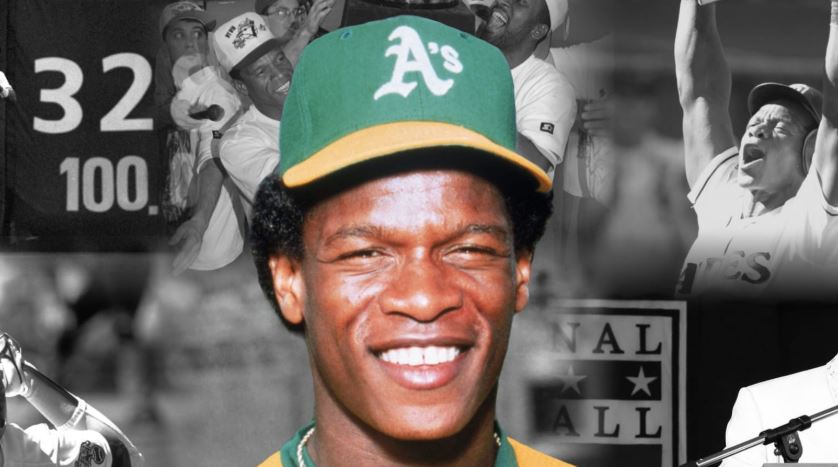The baseball community and sports enthusiasts worldwide were struck with sadness upon learning of the death of Rickey Henderson at the age of 65. Henderson, known affectionately as the “Man of Steal,” was not just a Hall of Famer but arguably the greatest leadoff hitter and base stealer in Major League Baseball (MLB) history. His passing on December 20, 2024, due to complications from pneumonia, has left an indelible void in the sport he revolutionized. Here, we celebrate Henderson’s life, from his early days to his monumental career achievements, while reflecting on how his peers and fans have reacted to this significant loss.
Born on Christmas Day in 1958 in Chicago, Illinois, Rickey Nelson Henley Henderson moved to Oakland, California, at a young age. His early life was marked by a love for sports, excelling in football, basketball, and baseball. Despite his prowess on the football field, where he was an All-American running back, Henderson’s path was shaped by his mother’s advice to pursue baseball, recognizing the longevity of careers in the sport over football. This decision set the stage for one of the most legendary careers in baseball history.
RIP Rickey Henderson 🙏
▫️10x All-Star
▫️2x World Series Champion
▫️All-Time Stolen Base Leader
▫️All-Time Runs Scored Leader
▫️1990 AL MVP
▫️3x Silver Slugger
▫️First Ballot Hall of Famer pic.twitter.com/CkhCrVj9sl— FOX Sports: MLB (@MLBONFOX) December 21, 2024
Rickey Henderson (1958-2024): ‘Man of Steal’
Drafted by the Oakland Athletics in the fourth round of the 1976 MLB draft, Henderson made his major league debut in 1979. His early career was a spectacle of speed and agility, quickly establishing him as a base-stealing threat. In 1980, just his second full season, Henderson broke Ty Cobb’s 65-year-old American League record by stealing 100 bases. This was only the beginning. In 1982, he shattered Lou Brock’s single-season record with 130 stolen bases, which still stands as one of MLB’s most unassailable.
Henderson’s career spanned 25 years, playing for nine teams but always returning to his beloved A’s. He was a 10-time All-Star, won two World Series titles (1989 with Oakland and 1993 with Toronto), and was named the American League MVP in 1990. Beyond his speed, Henderson was a potent leadoff hitter, setting records for runs scored (2,295) and unintentional walks (2,190), alongside leading the league in stolen bases 12 times.
The news of Henderson’s death sparked an outpouring of tributes from across the sports spectrum:
Dave Winfield, a fellow Hall of Famer and one of Henderson’s teammates, expressed his grief on social media, stating, “I still cannot believe I’ve lost one of my favorite teammates and great friend Rickey Henderson. Rest in peace.”
Mike Piazza, another Hall of Famer, described Henderson as “a dream to hit behind as a teammate and a nightmare for a catcher as an opponent,” highlighting his dual impact on the game.
Jim Palmer noted, “So sad to hear of the passing of Ricky Henderson. My condolences to his family, friends, former teammates and fans. Lots of great leadoff hitters have played the game of baseball, but Ricky arguably was the best ever.”
Frank Thomas echoed the sentiment, calling Henderson “the engine to my era” and emphasizing his entertainment value both on and off the field.
Across social media platforms, posts from fans and former players alike praised Henderson’s electric play style, his unique personality where he often referred to himself in the third person, and his immense contribution to baseball’s lore.
Legendary MLS coach Dominic Kinnear shared his personal connection, stating, “My favorite baseball player ever has just died. I don’t get sad very often when people I don’t know die, but this one has me sadder than I’ve ever been in this case.”
The greatest tribute to Henderson was shown through actions rather than words. This tribute occurred before his passing when Major League Baseball (MLB) made efforts to reshape the game to resemble the one Rickey played. In this version of the game, speed and athleticism are encouraged, while charisma is highlighted and celebrated.

